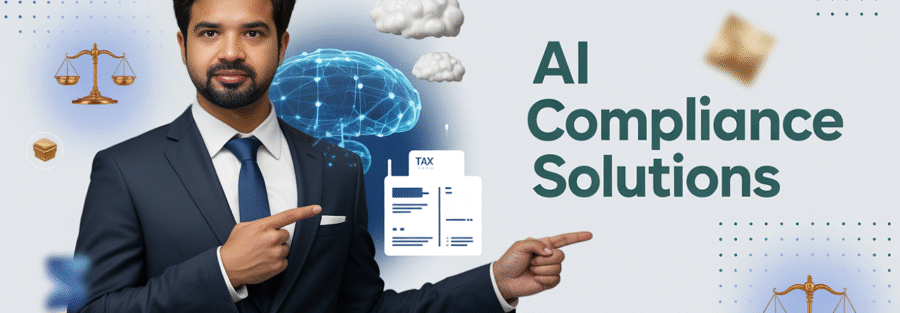📌 Introduction: AI Startup Compliance India in 2025
With the launch of BharatGen, India’s first indigenous AI model, the spotlight is on how AI startups in India should handle taxation, GST, and compliance. Startups in the AI space face unique challenges like SaaS taxation, intellectual property protection, and foreign investment rules.
This guide covers AI startup compliance India from both a legal and taxation perspective, helping entrepreneurs stay fully compliant while focusing on innovation.
🔹 1. Company Registration – The First Step in AI Startup Compliance India
Every AI startup should begin with proper company incorporation under the Companies Act, 2013. Most founders prefer:
- Private Limited Company (best for raising funds)
- LLP (for smaller teams with limited compliance needs)
Learn more about Private Limited Company Registration at IndiaFills.
🔹 2. GST on AI-Based SaaS Products
AI startups often sell Software-as-a-Service (SaaS) products. Under GST law in India, SaaS is treated as a supply of services.
- Standard GST rate: 18%
- Exports of SaaS can be treated as zero-rated supply, provided proper documentation is filed.
- AI startups should also issue GST-compliant e-invoices.
- Read official GST guidelines on SaaS from CBIC.
🔹 3. Income Tax & TDS Compliance for AI Startups
AI startups must consider:
- Corporate Tax: 22% (for domestic companies)
- Startup India Scheme benefits (3 years tax holiday under Section 80-IAC)
- TDS on Freelancers & Developers (especially if hiring AI engineers globally)
This is one of the most important aspects of AI startup compliance in India.
🔹 4. Intellectual Property (IP) Protection
AI startups build unique models, algorithms, and datasets. Protecting them is vital:
- Patent Registration for AI-based innovations
- Copyright Protection for training datasets
- Trademark Registration for brand security
Know more about Trademark Registration with IndiaFills.
🔹 5. FEMA & Cross-Border Compliance
Since many AI startups raise foreign investment, they must comply with FEMA (Foreign Exchange Management Act) rules.
- File FC-GPR for foreign investment reporting
- Adhere to RBI guidelines for equity & convertible notes
Failure to comply can result in heavy penalties.
🔹 6. Data Privacy & AI Regulation
AI-driven businesses deal with massive amounts of data. With the Digital Personal Data Protection Act (DPDP), 2023, startups must:
- Take user consent before data processing
- Implement strong data security policies
- Avoid cross-border data transfer violations
This is a critical part of AI startup compliance India in 2025.
🔹 7. Ongoing Compliance & Annual Filings
AI startups should maintain:
- Annual ROC filings with MCA
- GST return filing (monthly/quarterly)
- Income tax return filing
- Statutory audit reports
Check our GST Return Filing Services at IndiaFills.
📊 Why AI Startup Compliance India Matters in BharatGen Era
With BharatGen shaping India’s AI future, compliance will ensure:
✅ Smooth foreign funding approval
✅ Tax benefits under Startup India
✅ Trust among investors & users
✅ Long-term sustainability
📷 Suggested Image Alt Text: AI startup compliance India BharatGen tax GST
✅ Conclusion
AI is India’s future, but without compliance, even the best startup can face legal hurdles, penalties, and investor distrust. Following proper AI startup compliance India guidelines ensures your business grows legally and sustainably.
👉 At IndiaFills, we help startups with GST registration, tax filing, IP protection, and compliance services. Reach us at indiafills@gmail.com for expert assistance.





